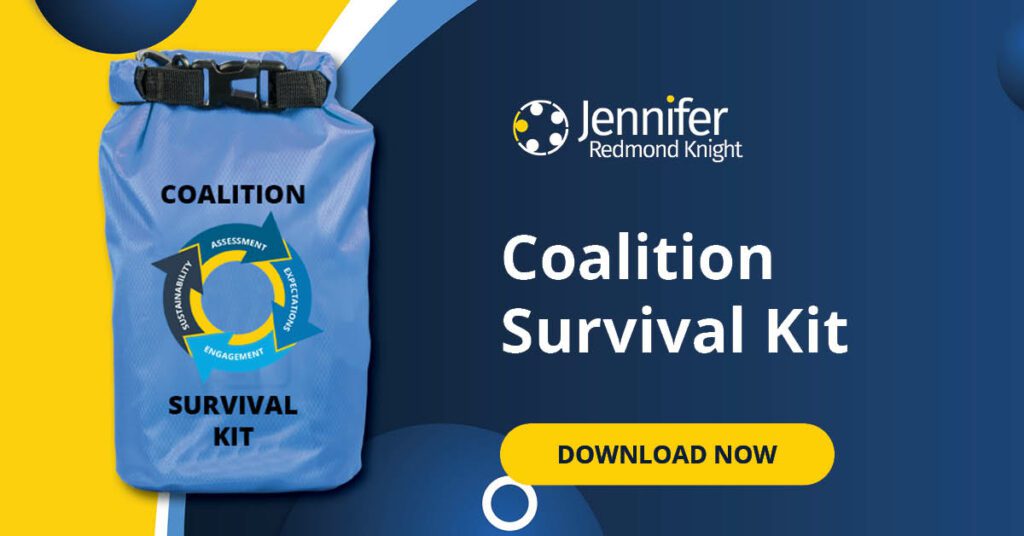Coalition building is all about working together with others to do more than we could do on our own. If we are going to work with others and make an impact, we have to trust the people in our coalition. Since most people involved in coalitions volunteer their time, we must create networks, teams, workgroups and partnerships that are built on trust. When you are trusted, people want to show up, volunteer their time and work together. When you are not trusted, people may attend your meetings, but they will never be comfortable fully participating and engaging in the work. Over the next few weeks, we are going to be discussing the Coalition Difference Maker: Trust. As we get started, let’s explore three aspects of trust in coalition work. Trust is:
Essential
Coalition work is all about relationships and relationships require trust. Although many people may “represent” an organization, you don’t actually work with organizations, you work with people representing organizations. If we are going to successfully work together to accomplish things that can only be done when we work together, there has to be trust. Coalition leadership provides the foundation for trust in the coalition. When your coalition members trust you, they are willing to come to meetings, share their perspectives and find collective solutions. You also set the example for trust among coalition members. While you cannot make everyone in the group trust everyone else, you can create an environment where trust can grow and thrive.
Intentional
If you are going to create an environment and culture of trust, you must be intentional. Practice being open, honest, clear, kind, welcoming, grateful, keeping your commitments and hosting meetings that demonstrate these examples. When there is a trust betrayal, coalition leaders must be intentional about repairing and restoring trust. Two of my favorite trust analogies focused on being intentional come from Stephen Covey and Brené Brown. Stephen Covey highlights the “emotional bank account” where trust is built by multiple deposits over time. And when you make a trust “withdrawal,” you are quick to apologize, be humble and try again. Brené Brown’s analogy highlights a “marble jar” where you put “trust marbles” in over time and how building trust adds marbles and betraying trust removes marbles.
A Process
Some people are more inclined to trust or distrust based on their own personalities, stories, experiences. Also, depending upon their experience with coalitions, they may be eager to trust and work together, or they may have had a really negative past experience that causes them to be especially cautious. Trust is built over time. As we practice trust-building (i.e. relationships-building) activities, we will experience more trust and be able to work together more effectively. When we apply Stephen Covey’s principle of “Seek first to understand, then be understood,” we are building trust. If we say we are going to do something and we follow through, we are building trust. The little comments, conversations and interactions impact trust.
What about you? How have you seen trust recently impact your coalition?
If you would like to learn more skills and engage with others who are also on a coalition, partnership or team building journey, consider joining my wait list for Coalition Catalyst Spring 2022.
If you haven’t yet checked out my Coalition Survival Kit with three key resources to support your coalition building work, click here!


